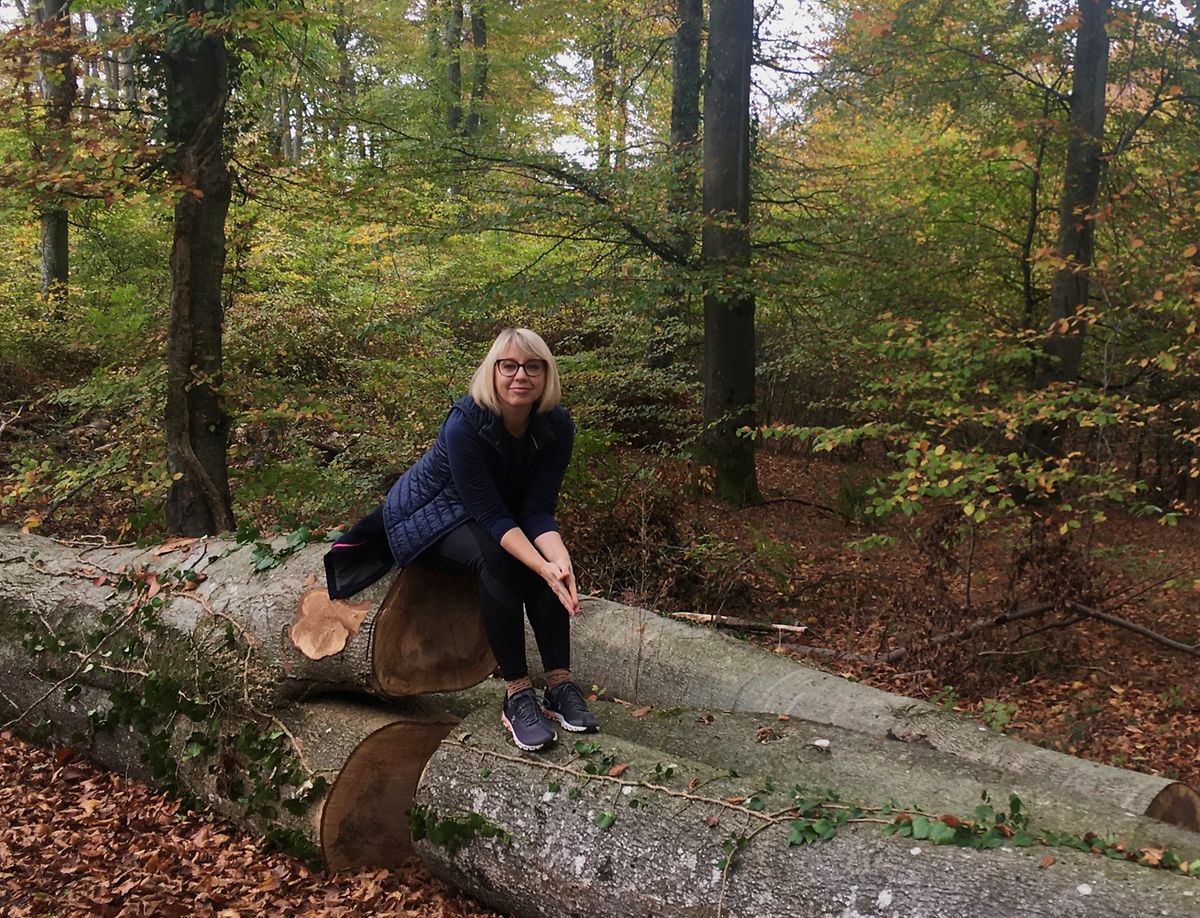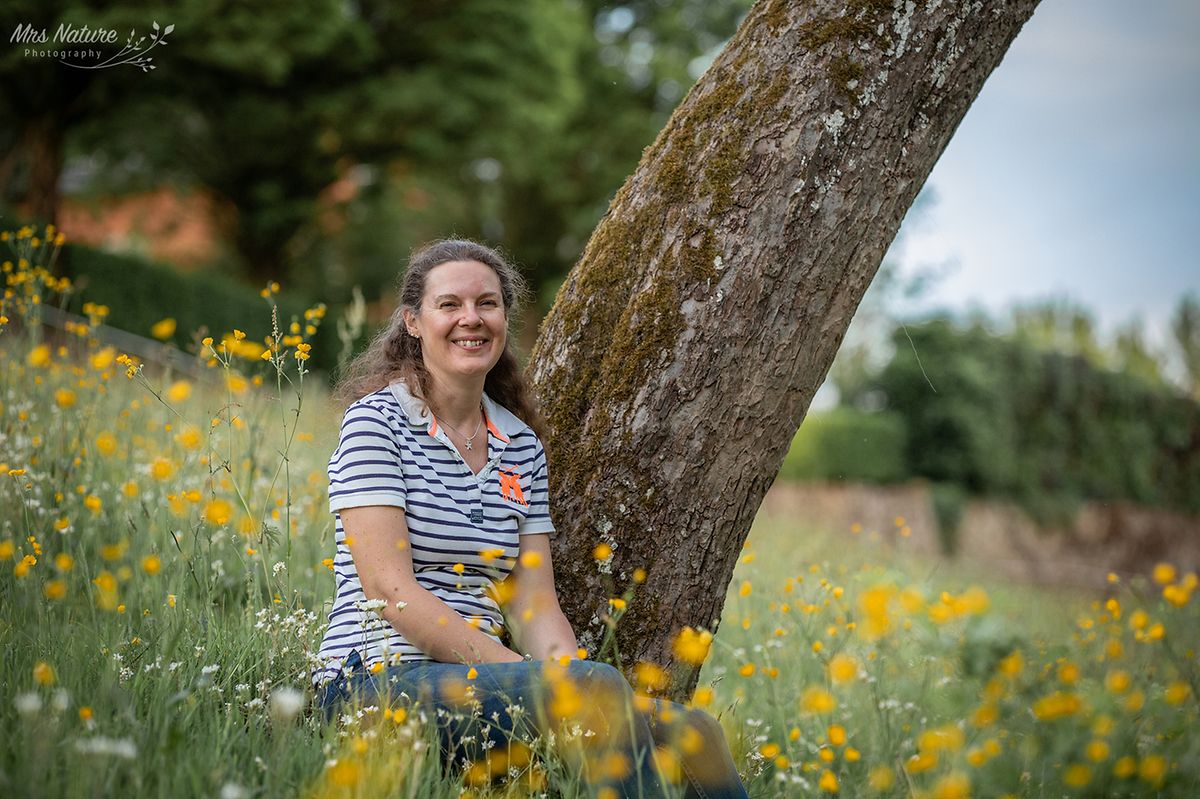From luxtimes.lu
If you cannot eradicate stress, anxiety or insomnia, can you deal with it using sophrology and mindfulness techniques? Two practitioners in Luxembourg think you can
Sophrology and mindfulness therapy are not new, but post pandemic, their popularity is on the rise. Both combine breathing techniques with forms of meditation, and focus on calming the body and the mind.
“Breathing is a very natural thing, but when you are stressed, it is the first thing you forget. You hold your breath, and this is not good for the body,” says sophrologist Alexandra Barancová.
Barancová came from Slovakia 17 years ago, and worked for ten years at the European Commission. She suffered chronic pain from an ailment, and tried medication and physiotherapy. She even considered an operation. Eventually she enrolled in Luxembourg’s Lifelong Learning Centre for a two-year University course in sophrology.
“It changed my mindset, and made me take responsibility for my own wellbeing. In Western medicine we tend to rely on doctors to fix us with medication, but Eastern medicine is more reliant on using your own resources,” she says.
Sophrology combines East and West
The word sophrology comes from Ancient Greek and translates broadly into the study of consciousness in harmony. It is a healing method that restores the balance between the mind and the body to promote overall health and wellbeing. Created in the 1960s by a Colombian neuro-psychiatrist, Alfonso Caycedo, who travelled across Asia, it incorporates facets from Japanese Zen meditation, Buddhism, and the breath work of yogis. Caycedo took what he discovered and combined it with western techniques such as progressive muscle relaxation, autogenic training, and psychology.

Sophrology mixes breathing exercises, relaxation, visualisation, meditation, and dynamic movements, and can be practised individually or in a group.
“After the pandemic, people are quite overwhelmed with emotions. We talk a lot about burnout, and sophrology helps you learn strategies and techniques so you can regulate stress levels and emotions.”
Sophrology can help one prepare for future events such as giving birth or surgery. Professional athletes use it to train mentally for competitions, and students can turn to it to aid in exam preparation.
Sophrology can be practised standing, seated or in a lying position. Barancová uses a gentle voice to guide you slowly into regular breathing and to relax your muscles from head to toe. “Once you relax the muscles, your mind relaxes. Then you are receptive to what is happening both inside and around you,” she says. In this state, people can focus on the present by using visualisation, and concentrate on a picture of a calm place to lower stress levels, or prepare for a positive outcome of a future event.
Barancová also uses dynamic movements to focus or to let go of anger or frustration. “A sophrologist gives you tools, but it won’t work if you don’t practise on your own.” Whilst it is a shorter-term therapy than psychotherapy, one session alone is unlikely to make dramatic changes.
Mindfulness-based stress reduction
Like sophrology, mindfulness-based stress reduction (MBSR), developed in the 1970s by molecular biologist Jon Kabat-Zinn, offers a fresh approach to managing issues from stress to chronic pain. The lifelong yogi and meditator had an epiphany on a retreat that mindfulness could be used for a wider audience. He initially took on participants referred to him by a hospital because traditional medicine had failed to help them.

Kate Ensor came to Luxembourg from England in 2013, and found the transition hard. A mindfulness book, followed by an eight-week course, ignited her interest, and in 2020 she started a master’s degree in mindfulness research and practice.
“MBSR works by using mindfulness to develop a different relationship to our experience. It helps to develop a fresh perspective on the stresses in our lives.”
Ensor starts with building mindfulness skills, followed by time exploring the body’s physiological and psychological responses to stress as well as how mindful awareness enables us to make new choices or respond differently.
“It’s about making a shift from reacting to stress to responding in a more considered way. Noticing what we add to our experience and how this can exacerbate stress,” she explains.
Ensor’s sessions start with a meditation, in different postures such as lying or sitting, or using yoga-inspired movement. Time is taken to reflect on how we relate to the moment, and how we can approach rather than avoid stressful situations. Home practise is also an essential part of the course. “It’s about developing and practising the skill of mindfulness and applying that to daily life, including what causes us stress.”
Much like sophrology, MBSR can help with chronic pain, low mood, anxiety and even psoriasis and heart conditions. “It helps you relate to and recognise triggers and take caring actions, such as a mindful pause or breathing space when you first feel a stress or anxiety trigger,” says Ensor, adding: “Mindfulness is a paradox because we are not trying to get anywhere, the end goal is to be more comfortable with things as they are, to develop a different relationship to stress.”
Combining with psychotherapy
How does this relate to traditional psychotherapy? Barancová is clear that the ethics of sophrology mean that she can only guide within the limits of her training. “If people are dealing with seasonal depression, it can be perfect, but for clinical depression, someone should first see a psychologist or psychiatrist. If I have the okay, then it can be combined.”
Ensor sees MBSR, and mindfulness-based cognitive therapy, which she teaches alongside a local psychologist, as integrative medicine. If someone is already seeing a psychiatrist or therapist or taking anti-depressants, mindfulness could potentially support their treatment. Ensor is also trained to recognise and advise if people might need a more holistic approach, including support from a psychiatrist or psychologist.
“It’s good to know that if you are dealing with stress or anxiety, you can turn to your breathing and body sensations. If you learn the principles, you will know what to do,” says Barancová.
Ensor sees mindfulness as something that “helps us wake up from autopilot. Most of us are on overdrive with our survival responses, triggered by emails or traffic jams – things that aren’t even survival issues. We are missing huge chunks of our lives through constant planning and ruminating.”
https://www.luxtimes.lu/en/health/every-breath-you-take-63e0cf2fde135b923668c709
No comments:
Post a Comment